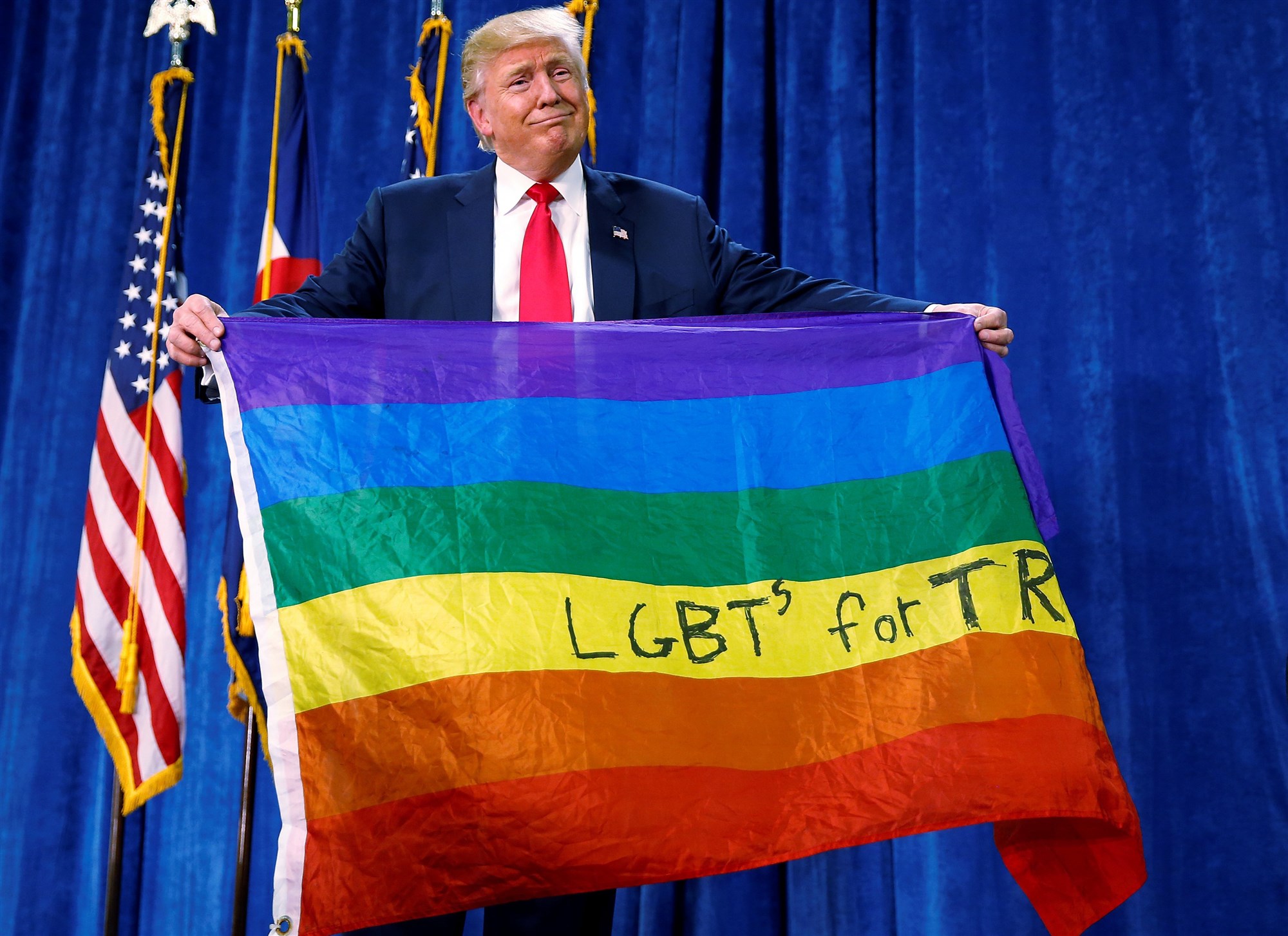
It may come as a shock, but the Supreme Court has actually never wrote the word “transgender” in a ruling until June 15, 2020.
And in a surprise move, the Court ruled 6-3 in favor of Title VII of the 1964 Civil Rights Act covering not just gay Americans, but all LGBT Americans.
In other words – your employer can’t explicitly fire you for being gay or transitioning, in addition to not being able to fire you for being a woman, a Catholic, or other disabilities.
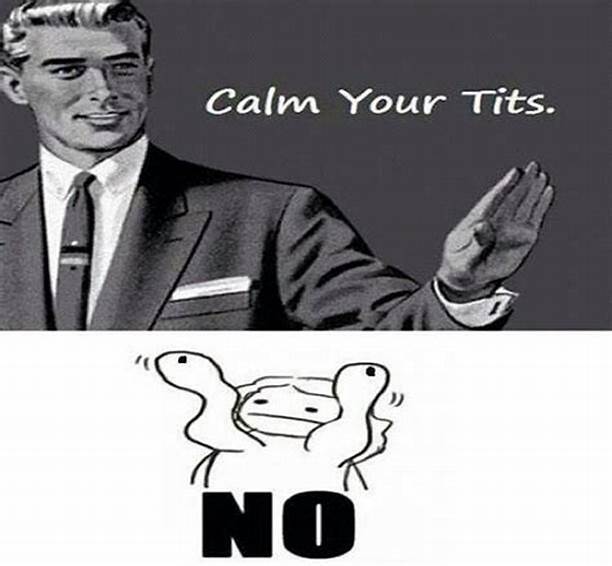
They still can fire you for being lazy, so it’s no excuse to slack off – even if your place of work is currently closed due to a pandemic, looting, or other soon-to-happen apocalyptic disaster.
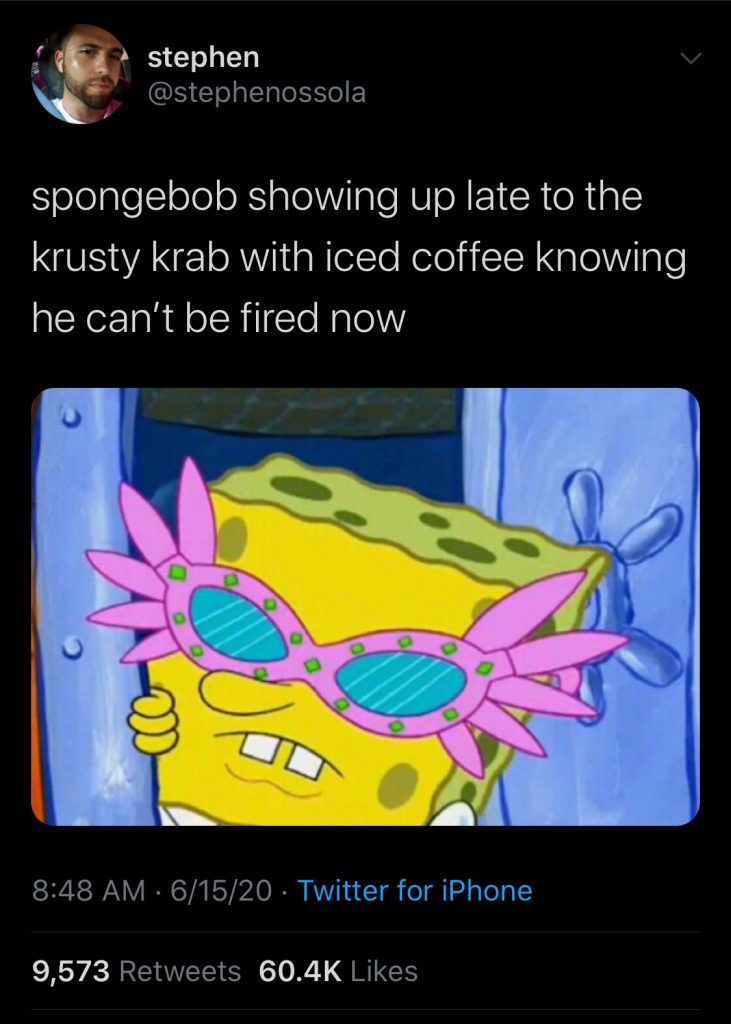
how is it only Monday
Supreme Court opinions are typically long, boring, and dry, but this one’s actually an interesting read.
The majority opinion was delivered by Justice Gorsuch, President Trump’s first pick for the Supreme Court. And the ruling was surprising, given that Gorsuch was assumed to be conservative in his opinions, holding that, for example, when there’s a question in front of the Court, the Court needs to stick as closely to the text of what they’re evaluating (the Constitution, existing law) so there’s no misunderstandings.
Gorsuch’s opinion does this in an interesting way, because while “sex” is mentioned as something your employer can’t fire you for (not having it, silly), homosexuality and transgenderism aren’t explicitly mentioned.
Gorsuch explains:
An employer who fires an individual for being homosexual or transgender fires that person for traits or actions it would not have questioned in members of a different sex. Sex plays a necessary and undisguisable role in the decision, exactly what Title VII forbids.
In his analysis, Gorsuch breaks down the plain definition of terms like “discriminate”, “because of”, and so on. It’s what legal people do. Everyone has to agree on the definitions.
He then provides an example of sex-based discrimination:
So an employer who fires a woman, Hannah, because she is insufficiently feminine and also fires a man, Bob, for being insufficiently masculine may treat men and women as groups more or less equally. But in both cases the employer fires an individual in part because of sex. Instead of avoiding Title VII exposure, this employer doubles it.
Tough day to be an asshole boss.
Here’s where it gets juicy:
Consider, for example, an employer with two employees, both of whom are attracted to men. The two individuals are, to the employer’s mind, materially identical in all respects, except that one is a man and the other a woman. If the employer fires the male employee for no reason other than the fact he is attracted to men, the employer discriminates against him for traits or actions it tolerates in his female colleague. Put differently, the employer intentionally singles out an employee to fire based in part on the employee’s sex, and the affected employee’s sex is a but-for cause of his discharge.
By this description, homosexuality is an expression of gender attraction and all of those behaviors. Can’t get mad at Bob for getting dick on the weekends just because Hannah does.
Or take an employer who fires a transgender person who was identified as a male at birth but who now identifies as a female. If the employer retains an otherwise identical employee who was identified as female at birth, the em- ployer intentionally penalizes a person identified as male at birth for traits or actions that it tolerates in an employee identified as female at birth. Again, the individual employee’s sex plays an unmistakable and impermissible role in the discharge decision.
By this description, transgender is an expression of gender identity and all of those traits. Or more simply, if Bob became Hannah and got fired because of it, you’re discriminating based upon Hannah’s sex.
Still with me so far? Good.

Gorsuch’s opinion goes on to acknowledge this is confusing – even for the employees:
If asked by a friend (rather than a judge) why they were fired, even today’s plaintiffs would likely respond that it was because they were gay or transgender, not because of sex.
Gorsuch includes examples of other cases which turned out to be sex-based discrimination, even if they weren’t explicit. In one case (Phillips vs. Martin Marietta), a woman was fired because she was a mother. In another (LADWP vs Manhart), women were required to give more to a pension plan because they lived longer. However, both were ruled as discrimination because they isolated employees based upon their sex.
Gorsuch goes on to give further examples and walk through anticipated arguments, including potential religion exemptions – for example, a church potentially objecting hiring someone who is of a sexuality that’s not of their belief. He explains there are already laws that protect these circumstances, and religious protections are extremely tough in existing law.
Ultimately, it goes back to the 1964 Civil Rights Act. The language was broad, and now courts have to interpret it broadly:
In Title VII, Congress adopted broad language making it illegal for an employer to rely on an employee’s sex when deciding to fire that employee. We do not hesitate to recognize today a necessary consequence of that legislative choice: An employer who fires an individual merely for being gay or transgender defies the law.
Trump’s other Supreme Court pick, Justice Kavanaugh did not sign on with the majority of the Court, but wrote a side opinion acknowledging:
Notwithstanding my concern about the Court’s transgression of the Constitution’s separation of powers, it is appropriate to acknowledge the important victory achieved today by gay and lesbian Americans…They have advanced powerful policy arguments and can take pride in today’s result.
Kavanaugh said happy pride, bitches!

The Supreme Court had an opportunity to settle this situation a long time ago – actually, just a decade after the Civil Rights Act of 1964 passed.
In the 1975 case of Grossman v. Bernards Township Board of Education, an elementary teacher, Paula Grossman, was fired after transitioning to female. In the decision, the US District Court of New Jersey claimed there were three standards to meet for sex discrimination:
Judge Barlow marshaled three reasons that Title VII did not cover Paula Grossman: Sex reassignment does not implicate sex. Plaintiff’s termination was because of change of sex rather than sex. Lastly, Title VII sex should be interpreted narrowly. These three reasons may be classified, respectively, as definitional (what is sex?), causative (is termination after sex change caused by sex?), and interpretive (do we construe narrowly or broadly?).
In other words – the District Court in 1975 was asking the same questions the Supreme Court had to ask 45 years later.
Judge Barlow later went on to describe:
In the absence of any legislative history indicating a congressional intent to include transsexuals within the language of Title VII, the Court is reluctant to ascribe any import to the term “sex” other than its plain meaning. Accordingly, the Court is satisfied that the facts as alleged fail to state a claim of unlawful job discrimination based on sex.
The case was kicked up to the then-liberal Supreme Court, who declined to hear it, meaning the state’s ruling stood. Interestingly enough, Grossman was still able to receive a disability pension and one of her students grew up to be Meryl Streep.
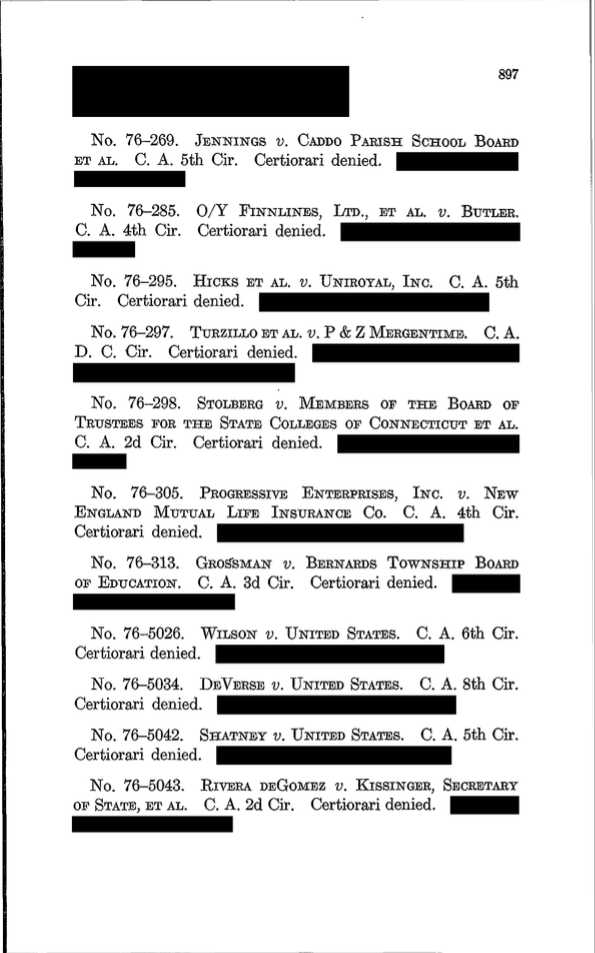
no one:
the supreme court: thank u next bitch!
But it’s not 1975 anymore, and a conservative Supreme Court has made its call.
Trump picking Gorsuch for the Supreme Court did more for gay rights and trans rights than Obama lighting up the White House rainbow for pride.

clown world
In fact, Trump did more for the LGBT community with this one pick than Obama/Biden did in eight years (lmao remember when Obama and Hillary and Biden opposed gay marriage…)
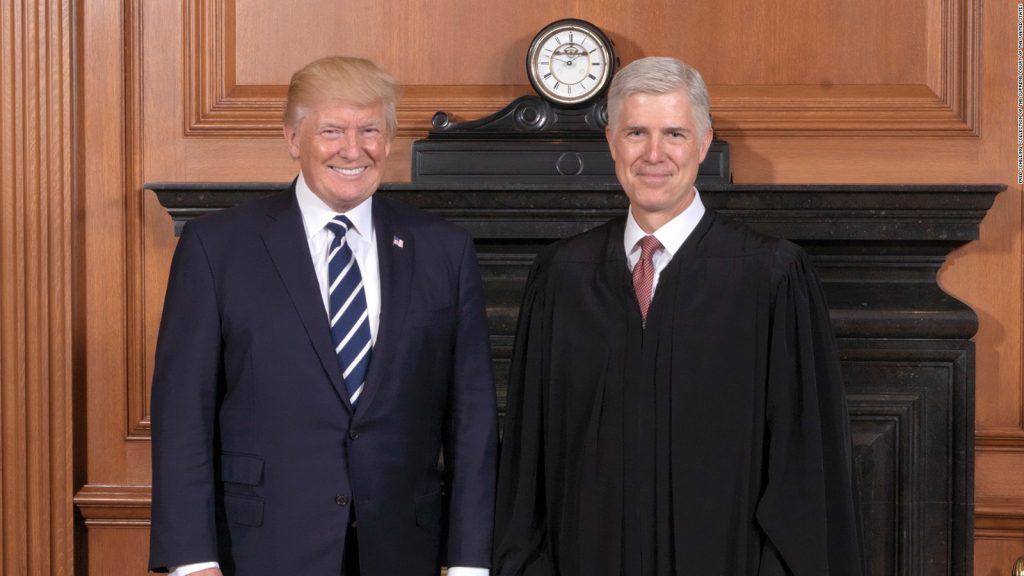
all because the guy on the left picked the guy on the right
This isn’t a surprise. Trump’s been outspoken in supporting the LGBT community from employment discrimination. From a 2015 interview:
Asked whether private companies should be able to fire employees simply because they’re gay, Trump told “Meet The Press” host Chuck Todd on Sunday that he didn’t think sexual orientation “should be a reason” for letting workers go.
But sure, the 2016 election was contentious, gay rights were a major campaign issue.
As far back as 2000, Trump was advocating the idea of amending the 1964 Civil Rights Act to prohibit discrimination based on sexual orientation.
“[A]mending the Civil Rights Act would grant the same protection to gay people that we give to other Americans — it’s only fair,” Trump told The Advocate in February, 2000. In the same interview, Trump said he favored “a very strong domestic-partnership law” that guaranteed same-sex couples equal legal rights as married, heterosexual couples. Trump also said he believed Don’t Ask, Don’t Tell — the military’s then-ban on openly gay service members — had “clearly failed.”
So wow…20 years ago Trump said “gay rights!”
In his 2000 book, “The America That We Deserve,” Trump outlined his dream of a nation “unencumbered by bureaucratic ineptitude, government regulation, confiscatory tax policies, racism, discrimination against women, or discrimination against people based on sexual orientation.” Eleven years later, Trump told CBN’s “The Brody File” that gay people were “tremendous” and that “there can be no discrimination against gays.”
And that last interview was with the Christian Broadcast Network, ballsy move.
Hey, it’s Pride Month right? The riots haven’t taken that away yet, have they?

you’re welcome






